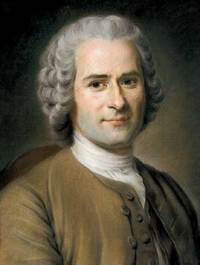Find the best price forA Discourse on Inequality
Jean-Jacques Rousseau, Maurice Cranston
Paperback, Published in Oct 1984 by Penguin Classics
ISBN10: 0140444394 | ISBN13: 9780140444391
Page count: 192
Paru en 1755, le Discours sur l'origine et les fondements de l'inégalité parmi les hommes peut être considéré comme la matrice de l'oeuvre morale et politique de Rousseau : il y affirme sa stature de philosophe, l'originalité de sa voix, la force de son "système".
Résoudre le problème posé par l'Académie de Dijon - "quelle est la source de l'inégalité parmi les hommes et si elle est autorisée par la loi naturelle ?" -, en d'autres termes expliquer que riches et puissants dominent leurs semblables sur lesquels il n'ont pas de réelle supériorité, exige aux yeux de Rousseau de poser à nouveaux frais la question "qu'est-ce que l'homme ?". Pour cela, il faut comprendre comment s'est formé sa "nature actuelle", si éloignée de ce que serait son état de nature : "Si je me suis étendu si longtemps sur la supposition de cette condition primitive, c'est qu'ayant d'anciennes erreurs et des préjugés invétérés à détruire, j'ai cru devoir creuser jusqu'à la racine..."
Compare New Book Prices for A Discourse on Inequality
SEARCHING FOR PRICES...



